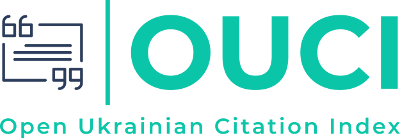Implementation of startups during the training of specialists in the field of information technology
DOI:
https://doi.org/10.34185/1562-9945-5-142-2022-01Keywords:
startup, educational process, higher educational institutions, stakeholders, IT technologies, innovative activity in higher educational institutionsAbstract
Now, the training of a specialist is considered as an output. When students enter higher education, the curriculum is drawn up for them, which is strictly followed throughout subsequent years, for example, four years for the bachelor. However, this approach does not suit motivated students who lack creativity along with actual knowledge. Thus, these students, in parallel with higher education, attend special courses in IT-companies. At the end of the course, students start working for an IT com-pany and lose motivation for further training at the university. The authors of the article offer a comprehensive approach to the introduction of startups in the educational process of universities during the training of specialists for the IT-field. Attraction to the educational process of stakeholders from IT-companies to solve actual problems will lead to the fact that students will be involved in the creative process, in which they will receive useful knowledge and skills not only in the specialty, but also learn to communicate in a team. The introduction of startups will lead to an increase in the number of motivated students, because students can for creativity to choose not only topics proposed by stakeholders, but also to offer their ideas. Close co-operation with stakeholders from the IT-field will lead to an improvement in the quality of the materials that teachers will offer students for training and will also allow univer-sities to earn on author courses and textbooks written by teachers. The authors of the article propose, together with start-ups to introduce flexible planning of the educational process for students who take part in start-ups, i.e. each motivated student will be able to engage in their educational trajectory and after graduation to obtain not only a di-ploma, But also certificates that will confirm the skills gained in startups. The article also indicates other benefits that each of the stakeholders will receive from the intro-duction of startups in the learning process.
References
How to reform Ukrainian education — recommendations of the World Bank. https://osvitoria.media/experience/yak-reformuvaty-ukrayinsku-osvitu-rekomendatsiyi-svitovogo-banku/
How changing the behavior of Ukrainians can make the country more prosperous. https://www.epravda.com.ua/columns/2021/09/16/677896/
Nation of unemployed bachelors. Six problems of education in Ukraine. https://www.liga.net/society/articles/natsiya-bezrabotnyh-bakalavrov-shest-problem-obrazovaniya-v-ukraine
Research results: Ukrainian students lack motivation to study. http://vnz.org.ua/statti/9945-rezultaty-doslidzhennja-ukrayinskym-studentam-ne-vystachae-motyvatsiyi-dlja-navchannja
Ukraine – learning nation. https://strategy.uifuture.org/ukraina-learning-nation.html
Statsenko V. I., Fedoryatskaya N.I., Features of risk management in the early stages of the development of innovative projects to enhance the energy efficiency of technical devices for conversing energy.// No. 3(58) (2019): Scientific and Applied Journal Vidnovluvana energetika
https://ve.org.ua/index.php/journal/article/view/210
Statsenko V. I. Actual issues of specialist training in the conditions of higher edu-cation reform. Development of start-up culture in universities as an important driver of education quality.
https://ksma.ks.ua/wp-content/uploads/2021/02/seutto__2020.pdf – p. 324-326.
Litvinov А.А., Karpenko N.V. Peculiarities in applying the personal-active ap-proach to specialists’ training in information technologies// System technologies. – N 1 (114). –Dnipro, 2018. – p. 136-141.
















